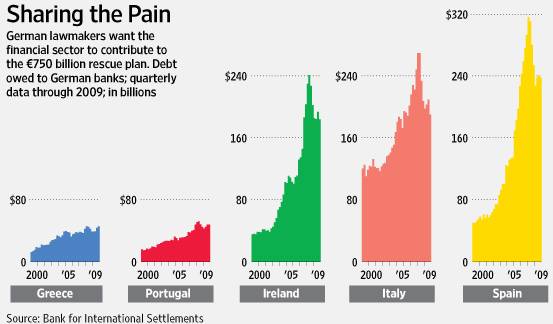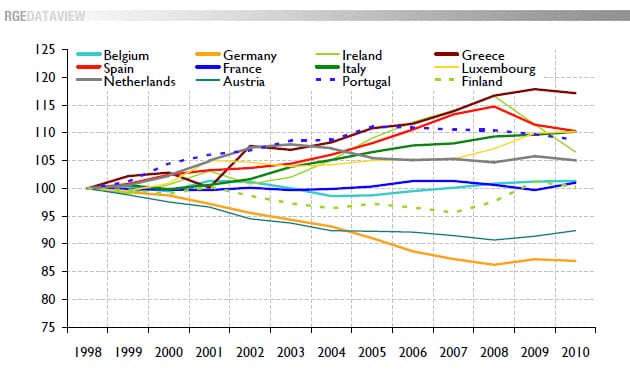HMS Conqueror wrote:There are two problems here:
First, Greece as a [US-style] state would still have a huge deficit it cannot sustain. It would still be unable to pay its old debts. Unless you mean Greece should be folded into a unitary European nationstate, the basic problem remains. In fact it's worse because the US doesn't allow states to secede, so that option is closed.
If Greece were folded into such a system
now it would be a problem.
I was thinking in terms of how this would work out if Greece had been part of an existing federal EU, say, one that had existed for 10 or 15 years since around 2000. In that case, Greek government would probably already have been to a large extent reformed and their internal economy and deficits 'normalized' to some extent,
before the recession hit and screwed over their income stream.
Greece would still be in bad shape, but it would arguably be less bad and there would be more tools for dealing with it.
Which is the same thing you could say about a truly independent Greece that could set its own fiscal policies without being bound by European policy.
Col. Crackpot wrote:you are not getting it. Had the EU had a Federal style tax system, Greece would never have gotten to where it is in the first place because is would have been subsidized by federal tax revenue, and had uniform collection. True there are US states with budget issues, (California comes to mind) but they would never be faced with the level of shit Greece is facing because A- Texas, New York, Illinois etc keep the tax receipts flowing and B-There is a non less corrupt system ensuring tax collection.
So federalization would be logical to ensure this doesn't happen again... but it will never happen.
Interestingly, California and Texas
both pay more in taxes than they get in funding from the federal government, although relative to its size California is closer to the breakeven point than Texas.
The states at the bottom of the heap are mostly the big, ruralized ones that don't have a lot of major centers of economic productivity.
HMS Conqueror wrote:US states don't have Greece-style problems because they're not corrupt quasi-first world kleptocracies. Most EU states don't have these problems either for the same reason. The Federal Government in the US does not even seem to have the power to stop a state acting like Greece, US states just have better cultural and institutional norms than Greece.
What would be needed to stop this is more like the total elimination of the Greek state and its replacement by a local EU bureaucracy.
Not-kleptocracy is not a magical state. Many countries have gone from having one to not having one, or vice versa. The secret is to punish thieves for fraud; it's really simple* and many countries clean themselves up given the opportunity to do so.
One way the US does this is because
much of the state budget comes from federal funds. Federal education money, federal highway money, federal Medicare money, money spent running army bases, laboratories, national parks, and so on. In a state where corruption is rampant, if this federal money is being misspent the Federal Bureau of Investigation can get involved- as they can also do if any of the corruption crosses state lines. In fact, just a few months ago,
the FBI threw a former governor of Illinois in jail for corruption.
A federal EU would have enforcement mechanisms like this, which would at least
limit opportunities for fraud and corruption. Internal Greek 'provincial' deals might still be corrupt, but a lot of the tax receipts would go directly to Europe via European bureaucracy, and would come back to Greece by the same bureaucracy.
*Think Clausewitz. "In war, everything is very simple, but the simplest thing is very difficult." "War is a continuation of politics by other means." Now put the two together.

HMS Conqueror wrote:For a particular type of culture, not just any that happens to be shared. There are large countries that are run like Greece.
Elimination of all the states and replacement by a central bureaucracy isn't federalism. Weak federalism is what we have now. And largely I agree, the logic implies going all the way or not doing it at all. But put like that, not doing it at all looks much more attractive.
Fine by me. That's a perfectly logical conclusion.
For the US, unity was so much better and cheaper and more cost-effective than division that it's amazing. For Europe, the reverse might be true- looking at the wildly different legal standards, political cultures, economic levels, and national responses to the world depression, I think that's very possible.






